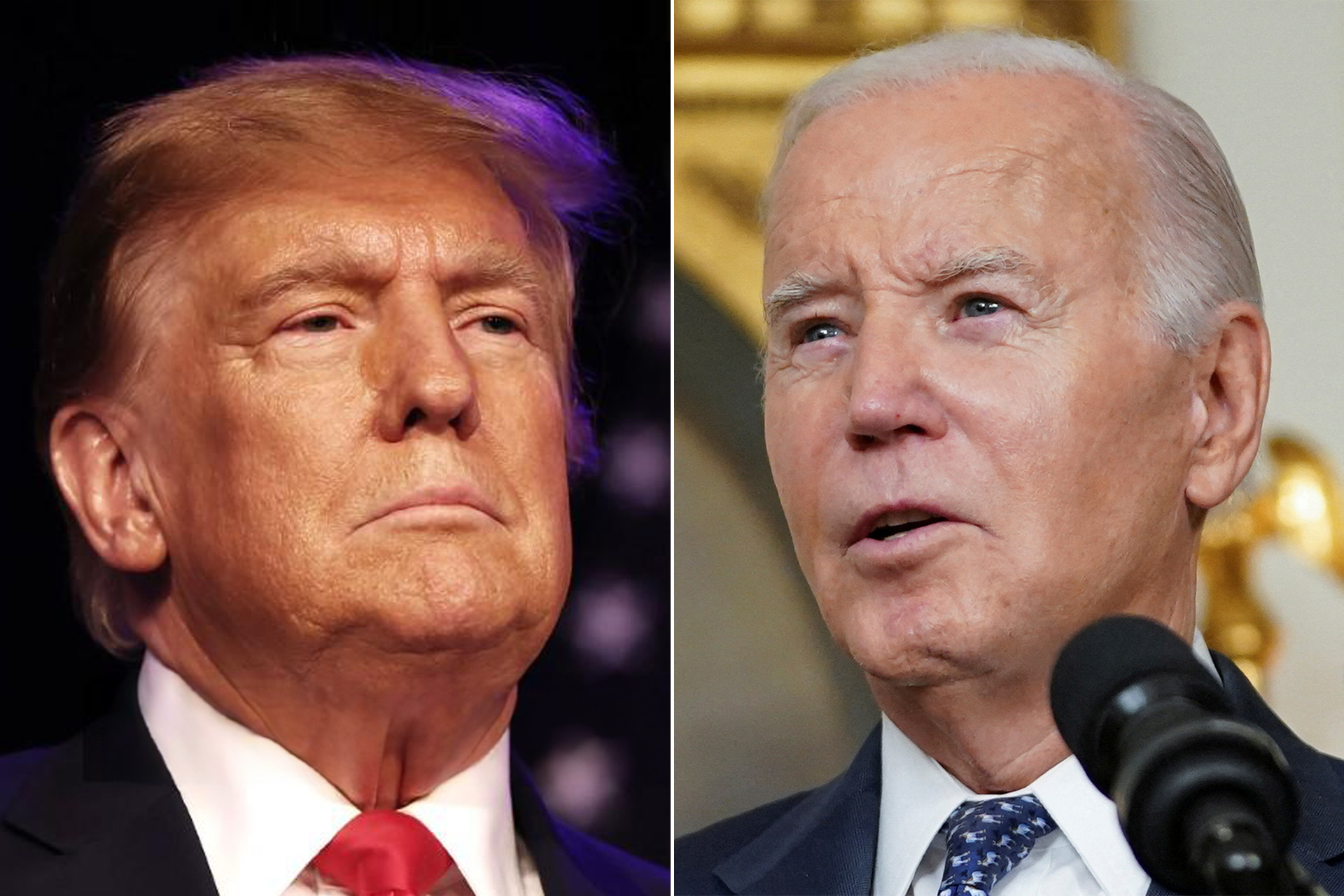US President Joe Biden (right) and his predecessor Donald Trump (agencies)
The current and former US presidents, Joe Biden and Donald Trump, achieved decisive victories on Super Tuesday, making a repeat of the 2020 confrontation seemingly inevitable.
But their successes in the primaries mask problems that could significantly impact the race for the White House.
Concerns related to Biden's age and anger over his handling of the war between Israel and Hamas were reflected in the celebrations of the major victories he achieved, while Trump faces doubts about his ability to unite the ranks of a party that is fragmented to an extent unparalleled in modern history as a result of his constant criticism of the Republican establishment.
Meanwhile, third-party and independent candidates have emerged as a potentially decisive factor, as voters who prefer to stay away from the front-runners appear to be more open than ever to unexpected figures who could swing the outcome.
If the primary elections that have taken place so far have shown anything publicly, it is that the Republican Party is not united behind its presumed nominee.
Tangible resistance to Trump also emerged among moderate suburban voters in almost every state where presidential primaries were held.
Convicted person
In opinion polls, about two-thirds to three-quarters of people who voted for Nikki Haley in North Carolina, Iowa and New Hampshire made it clear that Trump cannot depend on their votes.
Alyssa Farrah Griffin, director of public relations at the White House under Trump, wrote in an article in the Daily Beast on Wednesday that “Haley’s fictitious race for the Republican Party nomination exposed Trump’s flawed and weak position in the party, and even more broadly among American voters.”
The cases facing Trump in the courts (91 criminal charges in 4 different jurisdictions) complicated his path to the presidency, as at least one Republican voter out of every 3 who participated in the primary ballot ruled out supporting a person convicted of a criminal crime.
Trump said on social media on Monday that he wanted to unite Republicans, but he boasted of his "victory" over Haley and accused her of receiving support from Democrats belonging to the "extreme left."
The alarm is ringing
Meanwhile, fears prevail in the Biden camp as well, although the reasons differ.
A recent New York Times and Siena College poll revealed that the majority of people who elected the 81-year-old president in 2020 believe that he is “too old to be effective.”
Republican strategist Colin Reed told Sky News, “If you are on Biden’s team right now, this alarm bell is ringing and ringing loudly.”
Although there is little he can do about his age, the protest movement among Democrats over the war in Gaza is another obstacle in his way.
In Michigan, which Biden won in 2020 after the majority of its voters voted for Trump in 2016, more than 100,000 Democratic voters wrote “uncommitted” on their ballots in the February primary elections.
The number of cards bearing the same phrase reached between 45 and 88 thousand in several states on Super Tuesday.
“These are incredible numbers,” said Hassan Abdel Salam, founder of the “Abandon Biden” movement, adding that he sees support from Jewish and African Americans, in addition to Latinos and young voters.
But Biden supporters point to similar numbers in some of those states when Barack Obama sought to win a new term in 2012.
Independent presidential candidate Robert F. Kennedy (Associated Press)
Third candidate
This is a scenario that the Biden campaign prefers not to have to face in the elections, which are expected to be decided by a few hundred thousand votes in a small group of swing states.
Biden and Trump may not be able to control the rebellious votes in their ranks by November, leaving them with the biggest threat of all: third-party candidates.
Americans have not elected an independent president since George Washington, but their unwillingness to repeat the confrontation between Biden and Trump makes them more open than ever to the idea of a third figure who could change the outcome.
The matter is particularly sensitive for Democrats, as they have not yet forgotten how Jill Stein of the Green Party stood in Hillary Clinton's way in 2016.
Some analysts believe that Robert F.
Kennedy Jr., John Kennedy's nephew, could turn the 2024 elections into a race between 3 candidates, confirming to those who doubt it that many experts have completely ruled out Trump reaching the presidency in 2016.
"Robert F. Kennedy will represent a problem for Trump and Biden because he allows people to take another path," said political consultant Keith Nahigian, a veteran of many election campaigns who was an official in the White House under George H. W. Bush.
"It's up to the campaigns to keep people on track," he added.
Source: French

